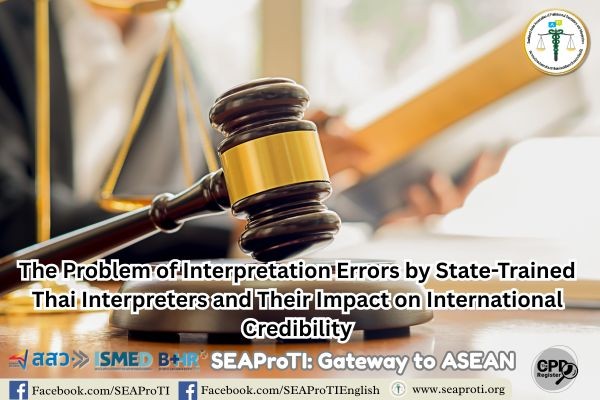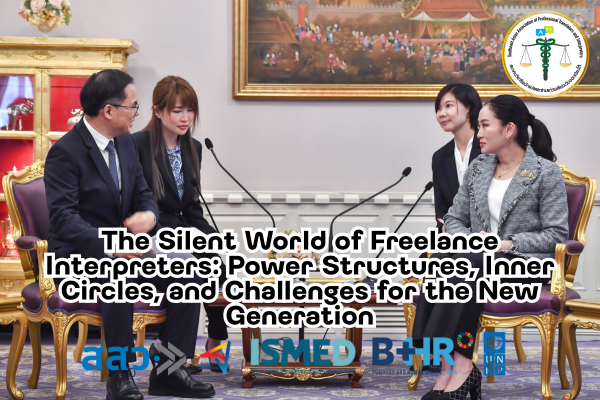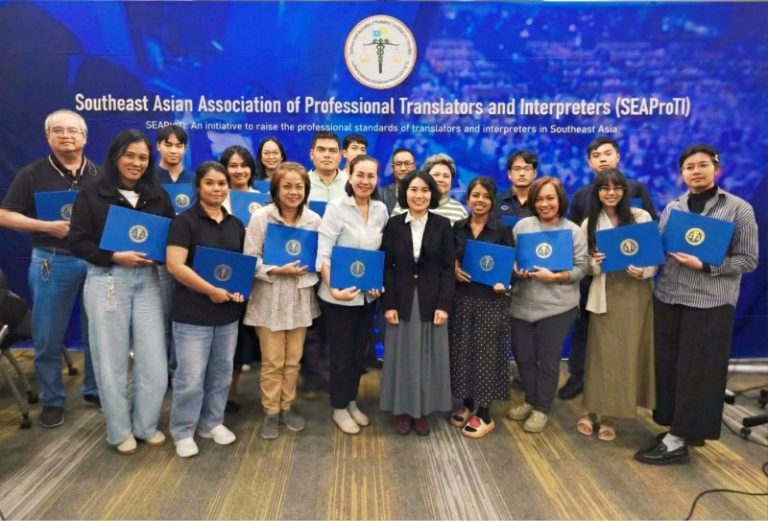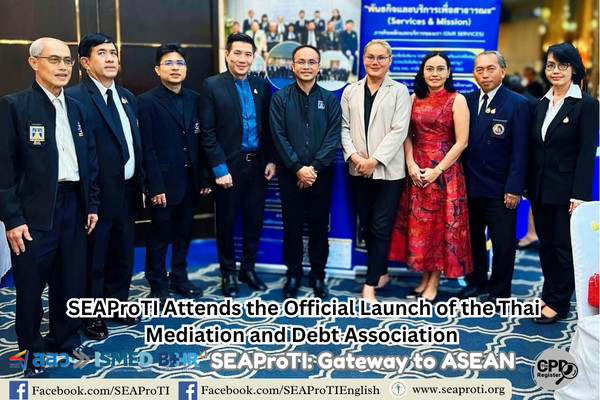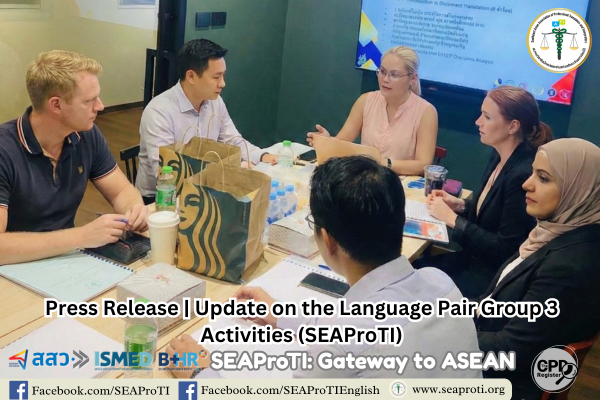The Problem of Interpretation Errors by State-Trained Thai Interpreters and Their Impact on International Credibility
19 November 2025, Bangkok – The issue of interpretation quality within Thailand’s bureaucratic system has long been a subject of criticism in the language-services profession. Numerous cases have revealed that interpreters trained by state agencies frequently produce inaccurate renditions, and in some instances use intimidation or coercion to pressure others into accepting their interpretations despite clear errors. Such conduct reflects deeper structural problems within the national interpreter-training system, including deficiencies in selection, training, and oversight. These systemic weaknesses have led many international organizations to avoid interpreters provided by Thai courts or government agencies.
Interpreter-training programs under Thai state institutions tend to rely heavily on short courses that focus primarily on lectures rather than practical skill assessment. These programs also lack mechanisms for performance evaluation after assignments and do not incorporate a sustainable system of quality assurance. This stands in contrast to the fundamental principles of professional interpreting, which require accuracy, neutrality, and the ability to convey messages effectively in high-stakes environments. International standards, such as those upheld by AIIC or by selection systems used by entities like the United Nations and the European Union, require interpreters to undergo performance-based examinations, post-assignment evaluations, and continuous professional development (Pöchhacker, 2016).
The use of coercion to compel others to accept an incorrect interpretation constitutes a serious breach of professional ethics. Interpreters are obligated to preserve the accuracy of the source message without inserting personal bias, and must remain open to verification, correction, and clarification. When an interpreter lacks these essential competencies, they may attempt to conceal errors or shift the resulting consequences onto witnesses, litigants, or other participants in legal proceedings. Such actions can cause significant harm to individuals’ rights and undermine trust in the justice system. Previous studies have shown that interpretation inaccuracies can materially affect legal outcomes and compromise fairness in judicial processes (Berk-Seligson, 2002).
International organizations—such as UNHCR, WHO, UNICEF, ADB, and various European institutions—routinely decline to use interpreters provided by Thai state agencies or courts. The reasons include concerns about quality, lack of neutrality, the absence of enforceable ethical oversight, and an inability to guarantee accuracy in contexts requiring complex legal or high-risk communication. Recruitment frameworks in these organizations emphasize rigorous professional standards, accountability for errors, and structured mechanisms for quality feedback and continuous improvement (Hale, 2007).
The recurring incidents of state-trained interpreters producing inaccurate interpretations and then using intimidation to defend those errors should therefore not be viewed as isolated cases. Rather, they signal the urgent need for systemic reform in Thailand’s interpreter-professionalization framework. The adoption of independent professional standards—such as performance-based certification, enforceable codes of ethics, post-assignment evaluation, and continual professional development—is essential for strengthening the reliability of interpreting services in Thailand. A robust, independent professional system also provides mechanisms for accountability, which is indispensable for interpreting in public policy, judicial processes, and international relations where errors cannot be tolerated.
In conclusion, the problem of inaccurate interpretation and coercive behavior among state-trained interpreters in Thailand reflects broader institutional weaknesses in training, selection, and professional regulation. Interpretation quality is closely tied to the protection of individual rights and the credibility of institutions. Reforming the interpreter-professionalization system through independent standards is therefore crucial for enhancing quality, transparency, and international acceptance.
References
Berk-Seligson, S. (2002). The bilingual courtroom: Court interpreters in the judicial process. University of Chicago Press.
Hale, S. (2007). Community interpreting. Palgrave Macmillan.
Pöchhacker, F. (2016). Introducing interpreting studies (2nd ed.). Routledge.
About Certified Translators, Translation Certifiers, and Certified Interpreters of SEAProTI
The Southeast Asian Association of Professional Translators and Interpreters (SEAProTI) has formally announced the qualifications and requirements for registration of Certified Translators, Translation Certification Providers, and Certified Interpreters in Sections 9 and 10 of the Royal Gazette, published by the Secretariat of the Cabinet, Office of the Prime Minister of Thailand, on 25 July 2024 (Vol. 141, Part 66 Ng, p. 100). Certified Translators, Translation Certification Providers, and Certified Interpreters
The Council of State has proposed the enactment of a Royal Decree, granting registered translators and recognized translation certifiers from professional associations or accredited language institutions the authority to provide legally valid translation certification (Letter to SEAProTI dated April 28, 2025)
SEAProTI is the first professional association in Thailand and Southeast Asia to implement a comprehensive certification system for translators, certifiers, and interpreters.
Head Office: Baan Ratchakru Building, No. 33, Room 402, Soi Phahonyothin 5, Phahonyothin Road, Phaya Thai District, Bangkok 10400, Thailand
Email: hello@seaproti.com | Tel.: (+66) 2-114-3128 (Office hours: Mon–Fri, 09:00–17:00)
ปัญหาความคลาดเคลื่อนในการแปลของล่ามที่ผ่านการอบรมจากหน่วยงานรัฐไทยและผลกระทบต่อความน่าเชื่อถือในระดับนานาชาติ
19 พฤศจิกายน 2568, กรุงเทพ – ความท้าทายด้านคุณภาพการล่ามในระบบราชการไทยเป็นประเด็นที่ได้รับการวิพากษ์วิจารณ์อย่างต่อเนื่องในแวดวงวิชาชีพภาษา เนื่องจากพบกรณีล่ามที่ผ่านการอบรมจากหน่วยงานของรัฐแปลความหมายคลาดเคลื่อน และใช้วิธีการกดดันหรือข่มขู่ให้บุคคลอื่นยอมรับคำแปลของตนเองแม้มีข้อผิดพลาดชัดเจน พฤติกรรมดังกล่าวถือเป็นปัญหาเชิงโครงสร้าง เพราะสะท้อนถึงระบบการคัดเลือก การพัฒนา และการกำกับดูแลที่ขาดมาตรฐานเทียบเท่าสากล ทำให้หน่วยงานระหว่างประเทศจำนวนมากหลีกเลี่ยงการใช้ล่ามที่ถูกจัดหาโดยศาลหรือหน่วยงานภาครัฐในประเทศไทย
ระบบอบรมล่ามของรัฐไทยมีลักษณะพึ่งพาหลักสูตรการฝึกอบรมระยะสั้น ซึ่งมักมีรูปแบบเป็นการบรรยายมากกว่าการทดสอบทักษะจริง ทั้งยังขาดระบบประเมินสมรรถนะหลังปฏิบัติงานและขาดกลไกตรวจสอบคุณภาพอย่างเป็นระบบ ลักษณะเช่นนี้ไม่สอดคล้องกับหลักการสำคัญในงานล่ามที่มุ่งเน้นความถูกต้อง ความเป็นกลาง และประสิทธิภาพในการถ่ายทอดสารตามมาตรฐานวิชาชีพสากล เช่น มาตรฐานของ AIIC หรือระบบคัดเลือกขององค์กรระหว่างประเทศอย่างสหประชาชาติและสหภาพยุโรป ซึ่งกำหนดให้ล่ามต้องผ่านการทดสอบเชิงปฏิบัติ การประเมินหลังงาน และการพัฒนาวิชาชีพอย่างต่อเนื่อง (Pöchhacker, 2016)
การใช้วิธีข่มขู่หรือกดดันให้ผู้อื่นยอมรับคำแปลเป็นพฤติกรรมที่ขัดต่อจรรยาบรรณของวิชาชีพล่ามอย่างร้ายแรง เพราะล่ามมีหน้าที่รักษาความถูกต้องของสารต้นทางโดยไม่แทรกอคติส่วนตัว และต้องเปิดกว้างต่อการตรวจสอบ การแก้ไข และการทวนสอบข้อมูล เมื่อขาดทักษะพื้นฐานดังกล่าว ล่ามอาจปกปิดหรือผลักภาระของความผิดพลาดไปยังพยาน คู่ความ หรือผู้เกี่ยวข้องในกระบวนการยุติธรรม ส่งผลให้สิทธิของบุคคลได้รับความเสียหาย และสร้างความเสื่อมศรัทธาต่อกระบวนการพิจารณาคดี ซึ่งสอดคล้องกับข้อค้นพบในงานศึกษาว่าความคลาดเคลื่อนในการล่ามสามารถส่งผลกระทบอย่างมีนัยสำคัญต่อสิทธิทางกฎหมายและความยุติธรรมในคดีความ (Berk-Seligson, 2002)
องค์กรระหว่างประเทศจำนวนมาก เช่น UNHCR, WHO, UNICEF, ADB และองค์กรในยุโรป มักไม่ใช้ล่ามที่ถูกจัดหาโดยหน่วยงานรัฐหรือศาลไทยอย่างเป็นระบบ เนื่องจากพบปัญหาเรื่องคุณภาพ ความไม่เป็นกลาง การไม่มีระบบกำกับจรรยาบรรณ และการไม่สามารถรับประกันความถูกต้องของคำแปลในสถานการณ์ที่ต้องอาศัยการตีความทางกฎหมายหรือการสื่อสารที่มีความเสี่ยงสูง การคัดเลือกบุคลากรขององค์กรเหล่านี้ยึดตามกรอบวิชาชีพที่เข้มงวด รวมถึงความสามารถในการรับผิดชอบต่อข้อผิดพลาดและการสะท้อนกลับต่อคุณภาพการปฏิบัติงาน (Hale, 2007)
ปรากฏการณ์ล่ามจากหน่วยงานรัฐที่แปลผิดแล้วใช้วิธีข่มขู่ให้ยอมรับคำแปลจึงไม่ใช่ปัญะเฉพาะบุคคล แต่เป็นปัญหาที่สะท้อนความจำเป็นเร่งด่วนในการปฏิรูประบบมาตรฐานวิชาชีพล่ามของไทยในภาพรวม การนำเข้าส่วนประกอบของระบบวิชาชีพอิสระ เช่น การสอบคัดกรองเชิงปฏิบัติ การกำกับจรรยาบรรณ การประเมินหลังงาน และการพัฒนาวิชาชีพอย่างต่อเนื่อง เป็นแนวทางที่จำเป็นในการยกระดับความเชื่อถือได้ของงานล่ามในประเทศไทยให้สอดคล้องกับแนวทางสากล การมีมาตรฐานที่เข้มแข็งและเป็นอิสระจากโครงสร้างราชการยังช่วยสร้างกลไกตรวจสอบและการรับผิดชอบต่อความผิดพลาด ซึ่งเป็นองค์ประกอบสำคัญของงานล่ามในทุกบริบท โดยเฉพาะในบริบทนโยบายสาธารณะ กระบวนการยุติธรรม และความสัมพันธ์ระหว่างประเทศที่ไม่สามารถยอมให้เกิดความคลาดเคลื่อนได้
โดยสรุป ปัญหาล่ามที่ผ่านการอบรมจากหน่วยงานรัฐไทยซึ่งแปลความหมายคลาดเคลื่อนและใช้แรงกดดันเพื่อปิดบังความผิดพลาดเป็นปัญหาที่สะท้อนถึงความอ่อนแอของระบบจัดการวิชาชีพในปัจจุบัน ทั้งในมิติการคัดเลือก การอบรม และการกำกับมาตรฐาน คุณภาพของงานล่ามเป็นประเด็นที่เกี่ยวพันโดยตรงกับสิทธิประชาชนและความน่าเชื่อถือของสถาบัน การพัฒนาระบบมาตรฐานวิชาชีพอิสระจึงเป็นสิ่งจำเป็นอย่างยิ่งเพื่อยกระดับคุณภาพ ความโปร่งใส และการยอมรับในระดับนานาชาติ
เอกสารอ้างอิง
- Berk-Seligson, S. (2002). The bilingual courtroom: Court interpreters in the judicial process. University of Chicago Press.
- Hale, S. (2007). Community interpreting. Palgrave Macmillan.
- Pöchhacker, F. (2016). Introducing interpreting studies (2nd ed.). Routledge.
เกี่ยวกับนักแปลรับรอง ผู้รับรองการแปล และล่ามรับรองของสมาคมวิชาชีพนักแปลและล่ามแห่งเอเชียตะวันออกเฉียงใต้
สมาคมวิชาชีพนักแปลและล่ามแห่งเอเชียตะวันออกเฉียงใต้ (SEAProTI) ได้ประกาศหลักเกณฑ์และคุณสมบัติผู้ที่ขึ้นทะเบียนเป็น “นักแปลรับรอง (Certified Translators) และผู้รับรองการแปล (Translation Certification Providers) และล่ามรับรอง (Certified Interpreters)” ของสมาคม หมวดที่ 9 และหมวดที่ 10 ในราชกิจจานุเบกษา ของสำนักเลขาธิการคณะรัฐมนตรี ในสำนักนายกรัฐมนตรี แห่งราชอาณาจักรไทย ลงวันที่ 25 ก.ค. 2567 เล่มที่ 141 ตอนที่ 66 ง หน้า 100 อ่านฉบับเต็มได้ที่: นักแปลรับรอง ผู้รับรองการแปล และล่ามรับรอง
สำนักคณะกรรมการกฤษฎีกาเสนอให้ตราเป็นพระราชกฤษฎีกา โดยกำหนดให้นักแปลที่ขึ้นทะเบียน รวมถึงผู้รับรองการแปลจากสมาคมวิชาชีพหรือสถาบันสอนภาษาที่มีการอบรมและขึ้นทะเบียน สามารถรับรองคำแปหฟลได้ (จดหมายถึงสมาคม SEAProTI ลงวันที่ 28 เม.ย. 2568)
สมาคมวิชาชีพนักแปลและล่ามแห่งเอเชียตะวันออกเฉียงใต้ เป็นสมาคมวิชาชีพแห่งแรกในประเทศไทยและภูมิภาคเอเชียตะวันออกเฉียงใต้ที่มีระบบรับรองนักแปลรับรอง ผู้รับรองการแปล และล่ามรับรอง
สำนักงานใหญ่: อาคารบ้านราชครู เลขที่ 33 ห้อง 402 ซอยพหลโยธิน 5 ถนนพหลโยธิน แขวงพญาไท เขตพญาไท กรุงเทพมหานคร 10400 ประเทศไทย
อีเมล: hello@seaproti.com โทรศัพท์: (+66) 2-114-3128 (เวลาทำการ: วันจันทร์–วันศุกร์ เวลา 09.00–17.00 น.


